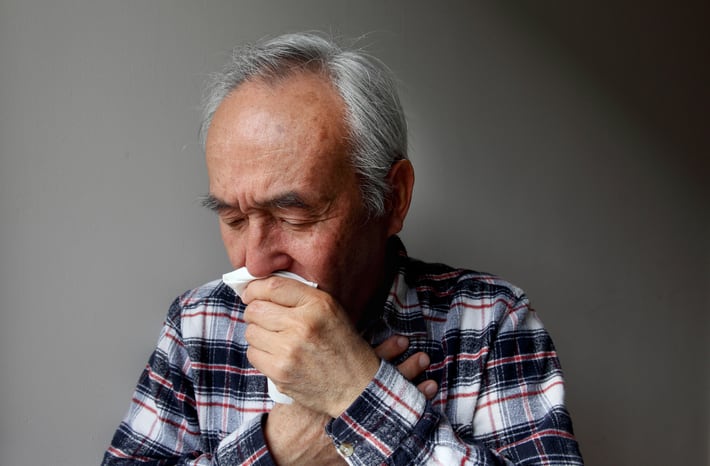One out of 20 developed influenza-like illness (ILI) after they took the dietary fibre, resulting in an incidence rate of five per cent.
In those who took the placebo, the incidence rate went up to 22.5 per cent, where nine out of 40 subjects developed ILI.
Findings of the study were recently published in Nutrients.
The study was a three-month double-blind, placebo-controlled clinical trial which took place in Egypt during the peak of ILI.
Eighty older adults were randomised into the intervention and placebo group.
Each day, the intervention group received 500mg of Biobran/MGN-3 – an arabinoxylan/dietary fibre derived from rice bran.
It is obtained by reacting rice bran hemi-cellulose with several carbohydrate-hydrolysing enzymes from shiitake mushrooms.
The final result is a polysaccharide that contains β-1,3-glucans and activated hemicelluloses.
The study materials were provided by Daiwa Pharmaceuticals from Japan.
Aside from a lower incidence rate, the intervention group also reported only 0.57 cases per 1000 person-days, while that of the placebo group was significantly higher at 2.95 cases per 1000 person-days.
The risk of ILI infection was also significantly lower in the intervention group, estimated at 18.2 per cent as compared to 55.1 per cent in the placebo group.
“Our finding that Biobran/MGN-3 supplementation significantly reduced ILI incidence suggests that it could be protective against influenza as well as other viruses known to be associated with ILI.
“Earlier studies [have also] showed that Biobran/MGN-3 supplementation was associated with reduced risk of infection and duration of the common cold among geriatric subjects aged 70–95 years.
“Interestingly, the antiviral activity of Biobran/MGN-3 has been demonstrated for non-respiratory viruses as well. For example, Biobran/MGN-3 has been shown to inhibit replication of the HIV virus and to reduce the viral load in chronic hepatitis C patients,” the researchers said.
NK cell activity
Supplementation of Biobran/MGN-3 has also shown to significantly enhanced natural killer (NK) cell activity.
The NK cell activity was measured using the blood samples of six randomly selected subjects from each group instead of all subjects, and the researchers said that this would be sufficient to detect the difference between the intervention and placebo group.
“Supplementation with Biobran/MGN-3 at 500 mg/day significantly enhanced NK cell activity, as suggested by the percentage of CD107a-expressing NK cells upon stimulation with PMA/ionomycin compared to basal levels as well as to the placebo group,” the researchers said.
In this case, NK CD-107a expression in the intervention group had significantly increased from the baseline of 49.5 to 75.2 post-study.
In contrast, NK CD-107a expression in the placebo group only saw slight changes, from 45.3 to 50.8.
As such, the researchers suggested that Bioran/MGN-3 could be a novel agent for modulating NK cell activity.
On the other hand, using human lung epithelial cells, it was also found that other biomarkers, including the receptor RIG-1 and proteins MDA5, ISG15, and MX1 were upregulated.
These receptor and proteins are linked to mounting a response against a host of viruses, such as influenza, ebola, hepatits D, dengue, and HIV-1.
“A crucial role for MDA5 and RIG-1 in sensing and mounting effective antiviral response against SARS-Cov-2 has recently been reported. Therefore, it is plausible to propose that Biobran/MGN-3 could counteract COVID-19 infection.
“It is worth mentioning that Biobran/MGN-3 is a notable biological response modifier in that it does not exhibit hypo-responsiveness, making it a unique and attractive agent for long-term preventive and/or therapeutic purposes,” the researchers said.
Source: Nutrients
Dietary Supplementation with Biobran/MGN-3 Increases Innate Resistance and Reduces the Incidence of Influenza-like Illnesses in Elderly Subjects: A Randomized, Double-Blind, Placebo-Controlled Pilot Clinical Trial
https://doi.org/10.3390/nu13114133
Authors: Ahmed F. Elsaid et al





